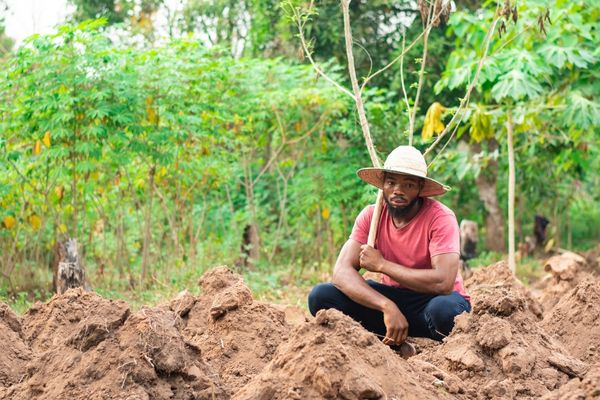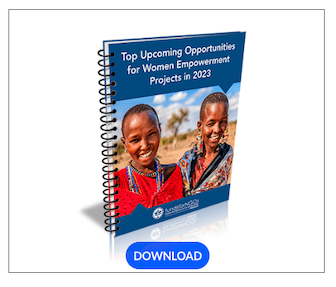
Deadline: 1-Mar-23
Do you have an innovation that supports farmers and other agriculture stakeholders to build capabilities to mitigate the effects of climate change in low- and middle-income countries? If yes, then apply for the WFP’s Agricultural Innovation for Climate Resilience Programme (AICR).
This accelerator programme is a partnership between the WFP Innovation Accelerator and the Deutsche Gesellschaft für Internationale Zusammenarbeit GmbH (GIZ) and its Fund for the Promotion of Innovation in Agriculture (i4Ag), commissioned by the German Federal Ministry for Economic Cooperation and Development (BMZ). They are in search of scalable innovative solutions supporting farmers and other agriculture stakeholders to build capabilities to mitigate effects of climate change on low- and middle-income countries (LMICs). The United Nations World Food Programme (WFP) Innovation Accelerator sources, supports, and scales bold new solutions to disrupt global hunger and achieve the Sustainable Development Goals.
The Agricultural Innovation for Climate Resilience Programme (AICR) aims to support high-impact solutions and agro entrepreneurs addressing resource efficient farming in LMICs. The programme will select early stage ventures and solution providers who will receive financial, technical, and methodological support from the WFP Innovation Accelerator, and other partners. With the collaboration of talented individuals globally, they will be able to drive climate resilience and the protection of natural resources, food security, improved income and employment.
Priority Topics
These solutions would be focused on one or more of the following priority topics:
- Space-efficient Innovations: Extreme weather events such as drought and flooding can reduce the productivity of agricultural land. Space-efficient innovations can help make farming more resilient to these challenges and ensure a stable food supply. They are seeking innovations and technologies that focus on optimizing land use, improving land productivity and resource mobilization. These solutions would revolve around urban farming, vertical farming, rooftop farming, remote-sensing data solutions for land classification based on satellite images, spatial optimization technology for generating alternatives for land-use and additional directions in spatial decision-making.
- Soil-Saving Innovations: Soil can store large amounts of carbon dioxide, which can help mitigate the effects of climate change. Soil-saving innovations can help improve the ability of soil to store carbon, reduce greenhouse gas emissions, help reduce erosion, and preserve the soil for future generations. The use cases include data-driven tools for precision application of soil inputs, utilization of agricultural waste products, natural substrates, cultivation without soil (soil alternatives), soil carbon sequestration & measurement, soil monitoring tools and response generation to eliminate or reduce the impact of soil compaction.
- Water-Saving Innovations: Water-saving through water treatment systems, irrigation systems optimization, conservation of water and equitable distribution of water is vital for conserving energy and reducing greenhouse gas emissions. Potential solutions include efficient systems for a combination of plant breeding and animal husbandry or fish farming, data-driven tools for optimizing water use, alternative water sources, and precision irrigation management.
- Renewable Energy Solutions: The agriculture sector is a significant contributor to greenhouse gas emissions, largely due to the use of fossil fuels for irrigation, transportation, and other purposes. Renewable energy innovations can help reduce these emissions and mitigate the impact of agriculture on the environment. They are seeking solutions that include alternative energy sources, energy optimization management, alternative energy storage system, data-driven energy demand response, software to design and model farming operations for lower energy and carbon footprint, and capture excess renewable energy generation.
What They Offer?
- Selected ventures will be invited to participate in a fully virtual 4-day WFP Innovation Bootcamp in July 2023.
- Selected ventures will also be able to apply for the WFP Sprint Programme, which is a 6- to 9-month acceleration programme with access to:
- Support from the WFP Innovation Accelerator and relevant partners through the duration of their Sprints.
- Mentorship and access to a global network of relevant stakeholders in their respective fields.
- Up to US$150,000 in equity-free funding for the implementation of a proposed growth plan.
- Solutions that have proven their concepts, scale, and value for social impact could qualify for further funding and support in future programmes or events in their alumni community.
- The WFP Innovation Accelerator has a track record of organizing over 45 flagship innovation bootcamps to date, supporting over 395 teams to rapidly refine their innovations, field testing over 100 projects, and bringing disruptive innovations to scale. Join a high-impact network of over 300+ disruptive innovations that have positively impacted over 9 Million people
What They Are Looking For?
- Selected ventures will be able to further develop their solutions toward scale during the 6- to 9-month WFP Sprint Programme.
- They are looking for early-stage solutions that are building value for social impact and can demonstrate that they:
- Are at least at a Minimum Viable Product (MVP) stage. Proof of concept is preferred.
- Have conducted pilot(s) or already established feasibility.
- Have a product or service with a verified potential of commercial value and impact.
Geographical Focus
- Mali, Burkina Faso, Niger, Nigeria, Cameroon, Togo, South Sudan, Ethiopia, Somalia, Kenya, Uganda, Zambia, Malawi, Madagascar.
Eligibility Criteria
- Your solution should be part of an established legal entity in, at least, one of the target countries (for-profit or social enterprise).
- The applicant organization must have a presence and be locally rooted in the country of implementation: country office or other permanent presence
- Your innovation clearly addresses one or more of the priority topics related to building climate resilience in agriculture and the food sector in any of the target countries.
- Your innovation must be at least at the Minimum Viable Product (MVP) stage; or Proof of concept with a validated prototype.
- Your innovation has a verified potential commercial value and impact.
- Solution should have a committed founding team with at least 5 full time employees
- Applicants should be able to provide evidence of user/customer validation of the value proposition.
- Ventures should be in the process of developing a clear path to commercial viability (business model fit).
- Solutions should have a potential plan to implement as part of the 6- to 9-month Sprint programme
- Innovations should change existing or establish new routines and have a positive impact on one or more of the following aspects: food security, employment and income generation and/or climate resilience and natural resource protection.
- The beneficiaries of the innovative solutions should be small-scale farmers, food processing companies, small and medium-sized enterprises, consumers, youth and/or women.
- Ventures should be able to demonstrate they have a diverse, non-discriminatory, gender balanced venture with demonstrated leadership and entrepreneurial mindset and what the vision of the team is.
- They prioritize ventures that focus on promoting gender equality and empowering women, either through their beneficiaries, job creation, or by having a high representation of women in leadership positions.
Criteria
- Impact & Scalability: Applicants should have a defined vision, an identified target group, and be able to demonstrate the potential to solve the posed challenge(s).
- Team: Applicants should be able to demonstrate they have a diverse, non-discriminatory, gender-balanced organization with demonstrated leadership and entrepreneurial mindset.
- Novelty: Applicants should be able to show how their solution and business model are innovative while being technically suitable, and viable.
- Traction: Applicants should be able to present evidence of feasibility and adoption by the target group.
- Business Model: Applicants should demonstrate the viability of their business model, how they intend to achieve a sustainable business, pricing, and financial model.
For more information, visit WFP.
